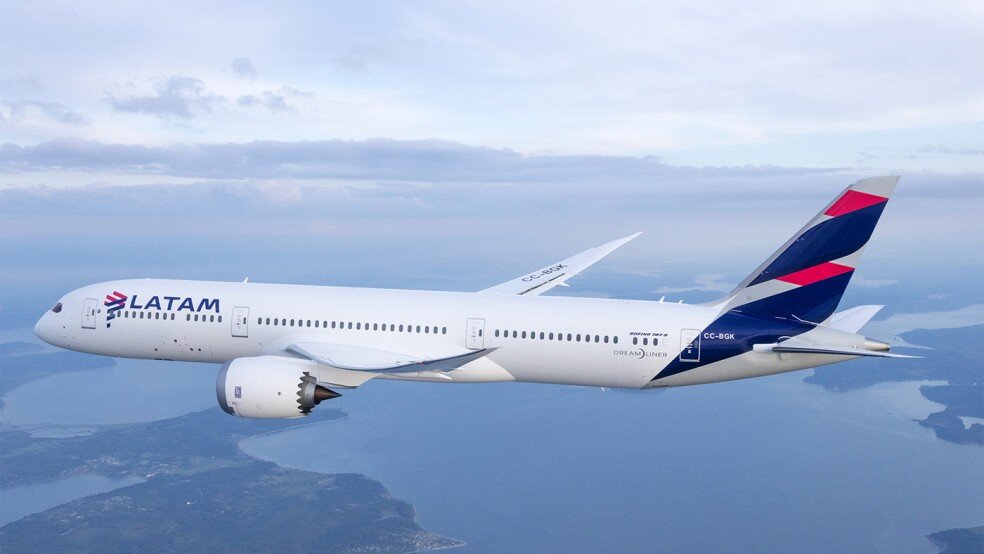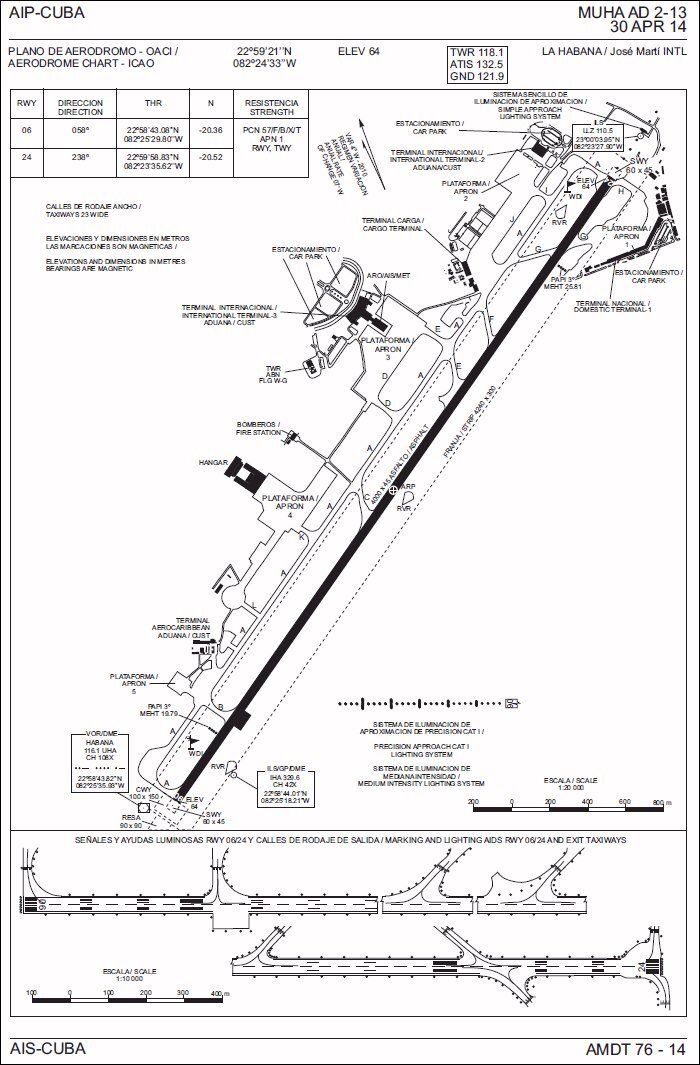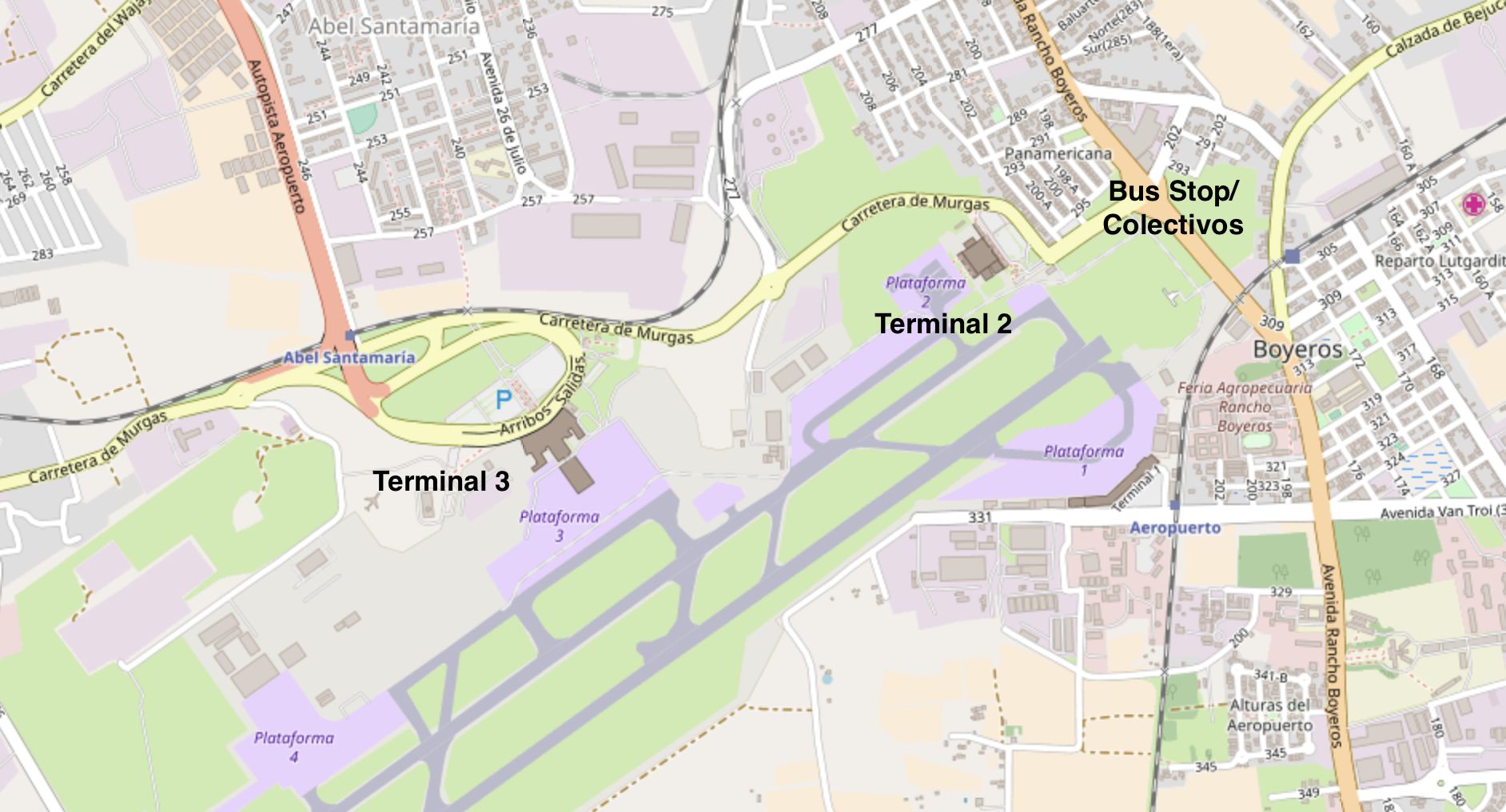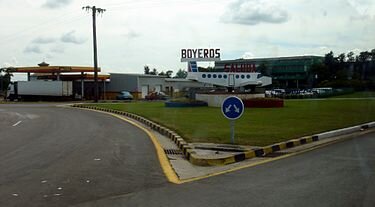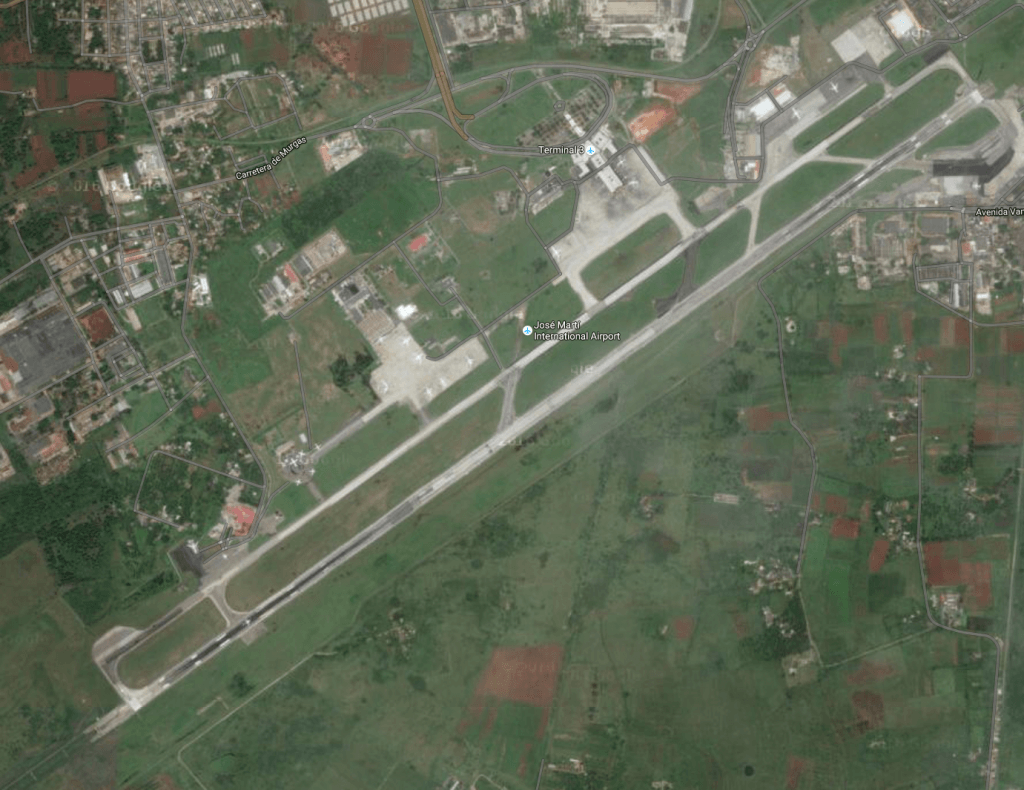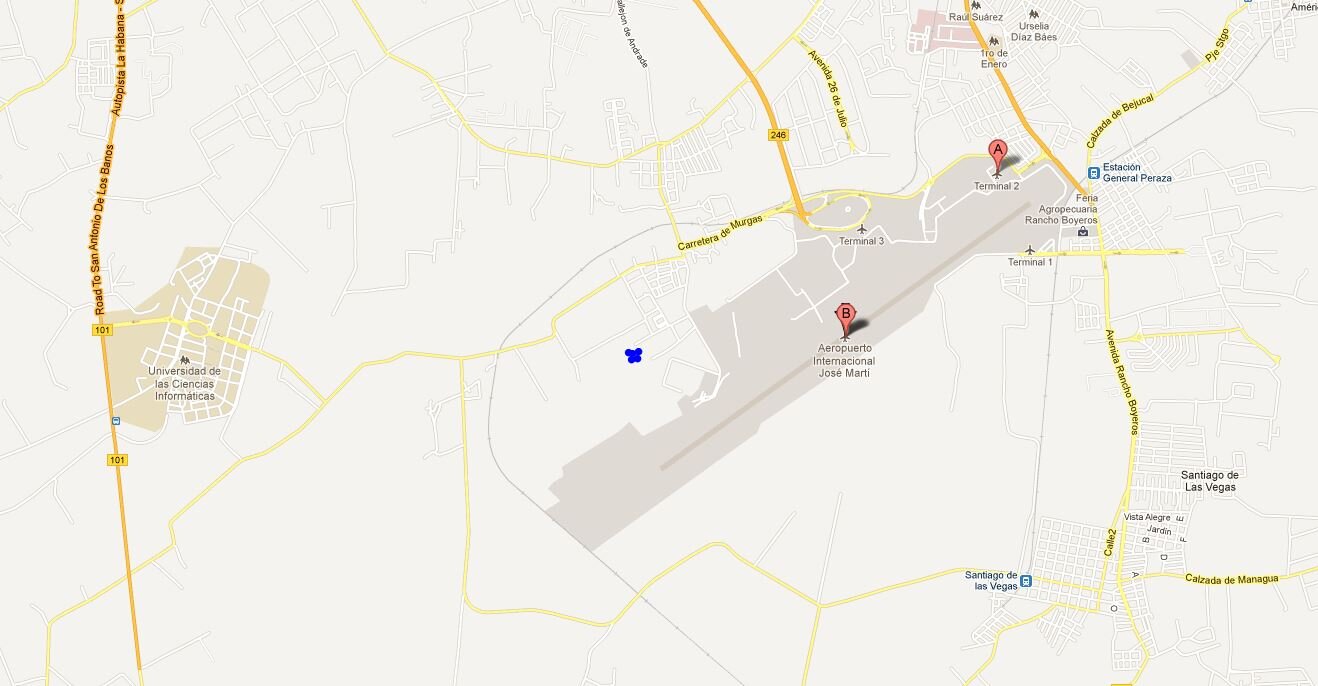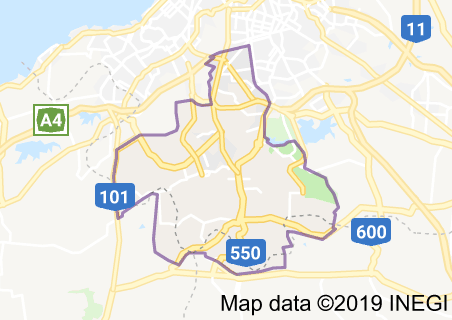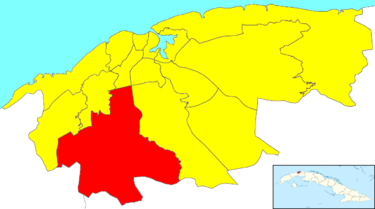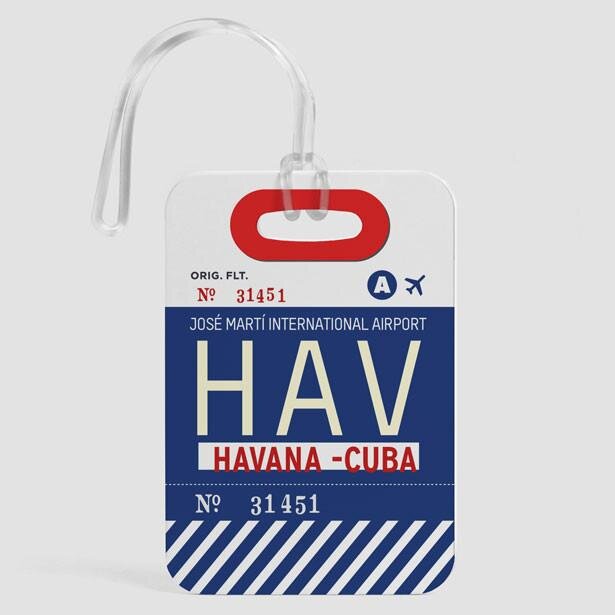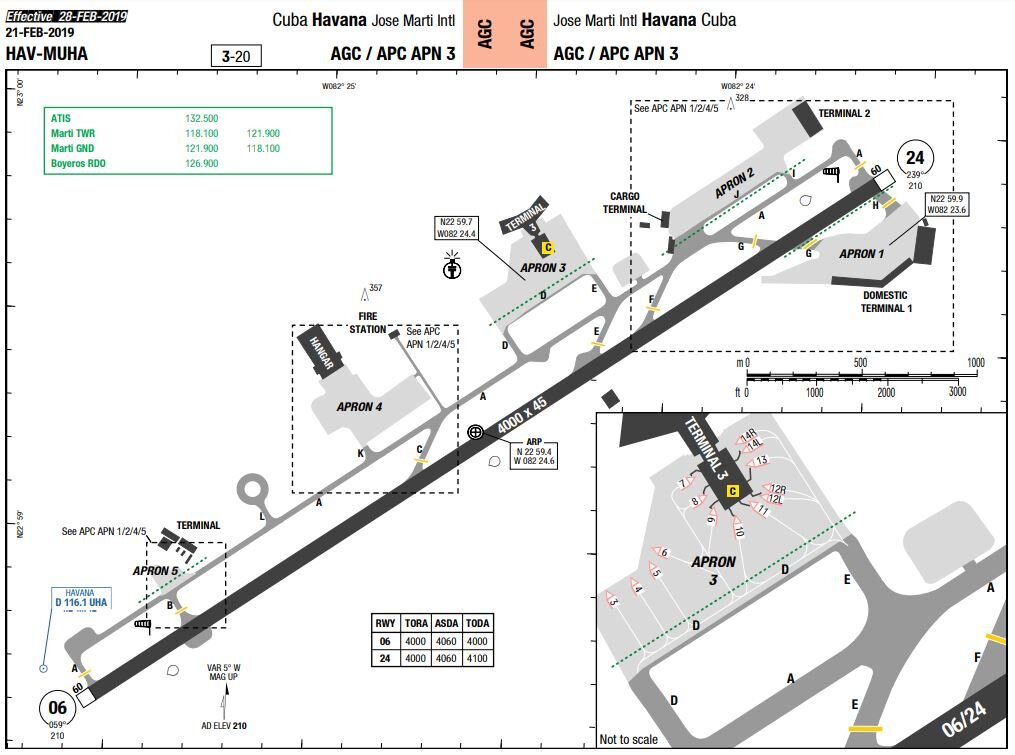Remarks By President Trump At Meeting On Venezuela
/Office of the Press Secretary
FOR IMMEDIATE RELEASE
September 25, 2019
REMARKS BY PRESIDENT TRUMP IN A MULTILATERAL MEETING ON THE BOLIVARIAN REPUBLIC OF VENEZUELA
InterContinental New York Barclay
New York, New York
10:16 A.M. EDT
PRESIDENT TRUMP: Thank you very much. Are you ready? Ready? Thank you very much. Thank you. I'm honored to be here today among so many terrific leaders dedicated to the future of democracy, prosperity, and freedom for the people of Venezuela. We are behind you.
For this deeply important event, we are grateful to be joined by Secretary Mike Pompeo, Secretary Steve Mnuchin, Secretary Wilbur Ross, and Administrator Mark Green. Thank you all for being here. Thank you very much.
I want to extend my profound appreciation to every representative with us from across the Western Hemisphere. Each of you is part of a historic coalition of 55 countries that recognize the legitimate constitutional government of Venezuela. We are especially grateful to be joined by representatives of the people of Argentina, Brazil, Colombia, Chile, Ecuador, and Peru, for their leadership and assistance in the face of an unprecedented political, economic, and humanitarian disaster, which has been going on for a long time. And we're helping a lot. We're helping a lot.
Let me also recognize two leaders from the government of Venezuela's legitimate interim government, Presidential Commissioner for Foreign Affairs, Julio Borges. Where's Julio? Julio? Please, stand up, Julio. Great. Thank you very much. Thank you. (Applause.) And Venezuela's Ambassador to the United States, Carlos Vecchio. Where's Carlos? Thank you, Carlos. Please. (Applause.) It's very nice. Thank you.
As everyone in this room knows, the situation in Venezuela is a tragedy of historic proportions. The Maduro regime does not care about the welfare of their own people. They care about their own power. It's what they want, is power and money. They want the money, too -- not just power. Socialism has destroyed what was once among the most prosperous countries anywhere in the world. You go back 20 years ago and you look: one of the wealthiest countries in the world, relatively speaking. And now, they don’t have water, they don’t have food, they don’t have medicine, they don’t have anything.
Today, Venezuelans are starving and they're dying from lack of medicine, doctors, help. According to U.N. Human Rights Commissioner, Maduro's Cuban-trained death squads have murdered up to 10,000 Venezuelans, and they think that number is extremely low. Citizens since -- all since 2018. That's over a very short period of time. These atrocities are an outrage to all and everything that we hold dear.
As President of the United States, I am committed to the future of stability, prosperity, and liberty for Venezuela. We will stand with the Venezuelan people every single day until they are finally freed from this horrible and brutal oppression. They will be freed. It will happen. Our first objective is to ensure a peaceful and constitutional transition, paving the way for free and fair elections. That's why we, at the United States, and in the United States, are doing everything we can to isolate Maduro and his cronies.
Over the past year, the U.S. Treasury Department has imposed very tough sanctions to prevent Maduro and his enablers from accessing the U.S. financial system. Last month, I issued an executive order to completely freeze the assets of the Maduro regime in the United States. Our sanctions have been tightly focused on closing down every avenue by which Maduro sustains his criminal and totalitarian rule. And he has been vicious, he's been corrupt. He's been as bad as you get.
At the same time, we have undertaken significant efforts to ensure that the Venezuelan people have access to food, medicine, and other humanitarian supplies, despite the regime's efforts to stop aid from coming into Venezuela. They are making it very, very hard to get aid into Venezuela. We are getting aid into Venezuela, but it's a very difficult thing. You would think, frankly, that would be to their benefit to let aid get in instead of letting people die from lack of medicine or food. But they don’t make it easy, but we get it in anyway.
We call on Maduro to immediately allow his lifesaving humanitarian aid. This has to be allowed to come into Venezuela for the long-suffering Venezuelan people. Unfortunately, a few countries outside of this hemisphere continue to enable this depraved regime with military and technological support. The most significant factor propping up the Venezuelan regime is the communist dictatorship in Cuba. Maduro allows Cuba to plunder Venezuelans' oil, raid its wealth, and rob its people. Venezuela's oil is at a low point. Not much is being taken out. Not many people are in there because of the dangers involved. But nevertheless, there's some money coming out, and it goes into Cuba.
He's allowed thousands of Cuban agents to infiltrate Venezuela's security forces and other institutions. In other words, Maduro has sold out his nation to a foreign dictatorship, and it has been that way a long time. The civilized world must pressure the Cuban regime to leave Venezuela immediately. The United States is ready to support a democratic transition government, and we know that our partners around the world -- of which we have many -- are ready as well. Venezuela's rebuilding can begin the moment a peaceful transition occurs.
This is a critical moment for the world. We must not allow the destructive forces of socialism and communism to repeat the horrors of the last century. Can't allow it to happen. There have been horrors like nobody would believe. We can't allow this to happen today in Venezuela. We resolve that the future of the Western Hemisphere will not be written by socialists and tyrants, but by liberty-loving patriots. Our great destiny is to become the first fully free hemisphere in human history. We have a very, very good chance of doing that.
We work and we pray for the hour when every person across the region, and every suffering soul in Cuba, Nicaragua, and Venezuela, will finally know the blessings of democracy and the full glory of freedom.
Once again, thank you all to so many of my friends in this room and to the nations that have helped us with respect to Venezuela and many other things. I want to personally thank the President of Mexico for the incredible work and spirit and everything that they’ve done on our southern border. Our southern border has become secure, with 27,000 Mexican soldiers on the Mexican side, telling people, “Sorry, you can’t come in.” So I want to thank the President of Mexico. Thank you very much.
And for Venezuela: It will all work. It will all come back. And good things will happen. Thank you very much. Thank you. Thank you very much, everybody. Thank you. (Applause.) Thank you very much.
Q Mr. President, on the transcript, sir? On the transcript, sir?
PRESIDENT TRUMP: Okay. You know what? Because you’re so anxious, we’re going to let you stay as certain presidents speak. Because I know that’s what you want to hear.
SECRETARY POMPEO: Thank you, Mr. President. Let me do the introductions. First of all, Mr. President, let me say how proud I am to be part of everything that you have led in this effort to try and bring the Venezuelan crisis to a peaceful and democratic resolution. Your leadership has been outstanding.
The work of the Lima Group, too, has been important. I believe it’s a sign of a new era in Latin America. And like your nations, the United States is tired of the heartbreaking stories of Venezuelans forced to dig through trash cans for food, of the hospital patients dying unnecessarily, of the millions of innocent children who go to bed hungry every night because 94 percent of Venezuelan households can’t get their basic necessities. The United States wants to announce today an additional tranche of $118 million to aid the Venezuelan crisis response. The assistance will include $36 million for relief efforts inside of Venezuela. They’ll provide urgently needed medicines that improve access to quality healthcare of for the Venezuelan people. The remaining monies will protect and assist many of your countries, as you generously host a combined 4.4 million Venezuelans who have fled their country -- over 10 percent of the Venezuelan population. We’ll help provide food, shelter, clean water, and legal support for them.
This brings to over $570 million the amount of aid that we have provided -- the United States has provided -- to ease the crisis, both inside Venezuela and throughout the hemisphere. As long as the Maduro regime stands, it will stand between the Venezuelan people and their return to freedom and prosperity. The United States, under President Trump, remains a steadfast supporter of the Venezuelan people and of the Lima Group in its ongoing struggle for the prosperous, free, and democratic Venezuela.
It’s now my pleasure to introduce a member of the true government of Venezuela: Julio Borges. Mr. Borges is a longtime supporter of a return to democracy in Venezuela, and for this, he has been forced into exile by the Maduro regime. He now lives in Colombia. Earlier this year, Interim President Juan Guaidó appointed him as Venezuela’s representative to the Lima Group, and later as presidential advisor on external relationships. Julio, you’ve been instrumental in rallying the international community to place pressure on the Maduro regime, and we’re honored to have you with us today. The floor is yours, sir.
MR. BORGES: Well, thank you. Thank you for being here today. I would like to make a five-minute introduction about what’s going on in Venezuela. I could be speaking in Spanish, but I have chosen to speak in English because, Mr. President, on behalf of the Venezuelan people, their democratic-elected National Assembly, and their President Juan Guaidó, I want to personally thank for the leadership that you have shown in our case.
PRESIDENT TRUMP: Thank you.
MR. BORGES: Your leadership has made a big difference. And I thank each and every one of you for what your governments have done to end the suffering in Venezuela and reclaim our democracy. You have helped us in our time of great need, which is something no Venezuelan will ever forget. Venezuela is not alone. Nicolás Maduro and his criminal regime is responsible for the historic crisis impacting our country. To put it in perspective, from an economic standpoint of view: Venezuela’s economic crisis is almost three times bigger than the Great Depression. And from the humanitarian point of view, it’s become the second-largest refugee exodus in the world.
President Guaidó has been working closely with you to reverse the situation. We, as a Venezuelan, has been fighting for almost 20 years. We have gone down many paths, seeking a peaceful solution, but the dictatorship has stalled all possibilities time and time again. Today, Venezuela is not passively asking for solidarity. The suffering of our people gives testimony of our times of need. This sacrifice have achieved important accomplishments. Let’s be clear: The diplomatic pressure from democratic voices has been effective. The dictatorship is fractured and weak, and only backed by the Cuban regime that has tortured, persecuted our people and our brave armed force.
Michelle Bachelet’s recent report exposed the repression, torture, and executions that the regime carries out against civilians and members of our armed force in Venezuela. Mr. President and all leaders of Americas, over the last year, regime force have murdered a citizen every two hours. Havana is the mastermind behind this tragedy to sustain Maduro. This is why crucial to break the regime of Díaz-Canel, Raúl Castro, and Maduro with more democratic pressure.
Our humble petition to the Americas is simple: First, that every country in the region should impose sanctions on Cuba. It is time for Castro and Díaz-Canel to understand the consequences of supporting a criminal regime. Second, every country in the region should move forward, as agreed to in TIAR, to prosecute any regime member involved in drug trafficking, human rights violations, and corruption.
Third, maintain the support for Venezuelan National Assembly and our President, Juan Guaidó. And last but not least, compel Europe to more actively join efforts to put more pressures on Maduro regime.
The alliance between the Cuban and Venezuelan regimes holds over 50 million hostage. Millions of Cubans and Venezuelans have had to abandon their homelands to escape oppression. And this should not be tolerated. I have had the honor of traveling to the border of Cúcuta with President Duque, with President Piñera, with President Abdo, and as well with Secretary Pompeo. And most recently, with Ivanka Trump. I have seen them moved to tears because the stories of suffering cannot be put into words. Mark has been many times over there as well.
As rightly so, because we are not talking about cold numbers or (inaudible) statistics. Socialist dictatorships, such as Maduro, dehumanize. With great pain, we have seen the regime has done the most vulnerable people in my country. Child prostitution, President, has been normalized. Women are being sold into slavery and taken to other countries for profit, while children and (inaudible) have been recruited by terrorist organizations linked to drug trafficking. And our people are crawling through the streets of Venezuela looking for food.
The Maduro regime is a corrupt, criminal enterprise that has turned what once was one of the most prosperous country in the region into a living and dying hell. The world needs to understand that Venezuela is not a dictatorship, not even a failed state. It's something worse. The Maduro regime is a sanctuary for the promotion of terrorism, drug trafficking, and organized crime.
Faced with this reality, there are those who are shocked when we say that no option can be ruled out to rid Venezuela and the region for this corrupt regime. They say that keeping every option is very dangerous. However, Mr. President, evidence shows that the worst thing that could happen in Venezuela is that nothing happens. What is truly dangerous, what is unacceptable, is having a regime destabilize the whole region while 35 million people are starving to death. Ignoring the crisis in Venezuela leaves an open wound that will infect the region and will destroy democracy throughout the continent. As I said, in the case of Venezuela, the worst thing that could happen is that nothing happens.
Presidents and leaders of the Americas, on behalf of millions of Venezuela, I thank you because we are close to victory. President Trump, you have led the free world in the fight for freedom in Venezuela and Cuba. History and the Venezuelan people will remember and recognize you. Recent opinion research in Venezuela shows the total support for our policy, for your plans to Venezuela, and you have become the most important leader within Venezuela, which is very important for us.
PRESIDENT TRUMP: Maybe I'll move there. (Laughter.)
MR. BORGES: All right. (Laughter.) Next time. I'm convinced that working together, working together the whole Americas, 30 years after the fall of the Berlin Wall, another wall will fall in the Americas and give the way to a chapter of peace, progress, and development for our hemisphere. Venezuela will rise with the strength of its people. We will reveal our country with the spirit of those who refuse to surrender.
President and leaders of the Americas, 32 millions of Venezuelans and 12 millions of Cubans are at the gates of freedom. Let's not make them wait any longer. Thank you very much. (Applause.)
PRESIDENT TRUMP: Thank you. Thank you. Would the presidents like to speak in front of the media or without the media? We have three presidents who are going to speak. Would you prefer the media or not, presidents?
SECRETARY POMPEO: President Duque, would you like to begin?
PRESIDENT DUQUE: Thank you so much, Mr. Secretary. Thank you so much, President Trump, for gathering this very important meeting. I’m going to be brief, but I'm going to try to be very (inaudible) in my statements. What we have been seeing in Venezuela is a tragedy of major proportional dimensions. What we have seen is the worst humanitarian crisis in Latin America's recent history. What we have seen is the brutality of a dictatorship that is only comparable to what some countries saw when Slobodan Milošević brutalized thousands of people.
That’s why we consider him a criminal. That’s why we have denounced him before the International Criminal Court with the support of many heads of state around the hemisphere, and also in Europe. We consider his behavior to be not only regrettable, but it has to punished, and that’s why we all must continue to embrace the diplomatic blockade and to explore as many sanctions are needed against that criminal. The second thing I want to highlight is that the migration crisis -- it's really producing a major social impact. In Colombia, we have supported the migrants. We have 1.4 million Venezuelan brothers and sisters, and we will continue to provide support because we know they're coming to our country with (inaudible), lacking of medicine, and many of them without any access to food.
But we have to make the call to the whole world that this situation is unsustainable. And that’s why the coalition that is sitting among this table, but also the coalition that has build of more than 54 states that have recognized President Guaidó and they have recognized the National Assembly, must also continue to bring more countries to the table, because this coalition has to be stronger day by day.
I also want to highlight that the behavior of the dictatorship is also affecting the national security of many states, obviously including Colombia. Nicolás Maduro has become a sponsor, and he's providing safe haven to terrorist groups from Colombia to plot against the Colombian people. And that attitude is only comparable to what the world saw when the Taliban regime allowed al Qaeda to plot against the whole world, in their soil.
We continue believing that that behavior is in direct violation of Resolution 1373 that was issued by the United Nations Security Council right after September 11. And we're going to make that denouncement public today when I deliver my speech before the U.N. General Assembly. I will present a report that is going to be given to the U.N. Security Council, the U.N. Secretary-General. And I believe that that report should be open for a debate.
We also believe that that behavior requires not only the whole world to be seen and to be addressed, but we also want to highlight what happened this week in a historical way. The Inter-American Treaty for Reciprocal Assistance had a historical voting, and they recognized that the Maduro regime is pretty much involved in terrorism sponsorship, narco-trafficking activities.
And last but not least, I also want to mention that the following months are crucial. The following weeks, the following hours are crucial. Some people speculate whether Maduro is going to last more. But I continue the debate should be different. The debate is: What is it that we’re going to do so that we can grant liberty to the Venezuelan people? That’s why we’re gathered here at this table, and that’s why we support the approach of strengthening everything we can do so that three conditions are met: the end of the dictatorship, a transitionary government, the call for free elections, and maybe I’ll include a plan for economic and social recovery in Venezuela. Thank you so much, Mr. President.
PRESIDENT TRUMP: Thank you. Thank you very much. (Applause.)
SECRETARY POMPEO: Thank you, President Duque. Now I would like to hear from President Piñera. Please.
PRESIDENT PIÑERA: Thank you very much. Well, we all know that we are dealing with a criminal, corrupt -- (microphone is turned on.) I’m sorry. Thank you very much. We all know that we are dealing with a criminal, corrupt, and drug-related regime. And the conclusion is very clear: This dictatorship has to stop. Maduro is part of the problem and will never be part of the solution. The solution has been expressed by President Duque. We need to end this regime, have a transitional government, call to free and open and transparent elections, and then the big story of how to reconstruct Venezuela will start. And we will be supporting all of these stages.
But at the same time, we have to realize there are some allies that are helping Venezuela, and we are talking -- we are talking about countries like Cuba, China, Russia, Iran, and Turkey. I think that the whole Latin American community, and maybe the whole world, should let them very clear that what they are doing is affecting -- and it’s really affecting the interests of all Latin American countries.
We know that we have already more than 4.5 million refugees -- migrants. But probably the number will double if the situation stays as it is. In the case of Chile, we have received more than 450,000, which is about 2 percent of our population. Compared to the U.S., it would be equivalent to 6 million Venezuelans in the U.S. And we are happy to do so because that’s one way to help. But the solution and the final conclusion here should be we have to make it impossible for the regime to continue. One thing is that we have to seize all their assets of their main members of this dictators; avoid and prevent any moment so that the situation will become more and more difficult for them; and, at the same time, we have to help and solidarize and continue with the democratic opposition in Venezuela. But I know the situation is very, very difficult. But you know that the night never is so dark that just before dawn. Thank you very much. (Applause.)
SECRETARY POMPEO: Thank you, President Piñera. President Moreno, the floor is yours, sir.
PRESIDENT MORENO: (As interpreted.) Thank you. My dear colleagues, the ill that brings us here today has to do with the democracy of the world and the stability of a region. It is related specifically to this people -- this people who was suffering and the presidents around the table from countries to which over 4 million migrants have gone; people who are living beings, who wander the streets, they wander our avenues, looking for refuge. They seek a way out. They seek a solution to the problems they face when it comes to hunger, safety, and health. They have been kicked out by this regime. They seek social justice.
However, this regime has been despotic for so many years, and it is due to this. But international action should never be interpreted as intervention. We cannot talk about intervention because all countries, including Venezuela, have signed all commitments, all agreements related to the democracy of this community. This is an ethical obligation as well. My colleagues who preceded me have stated this. We are talking about over 4 million people, who are humble people, who have fled, who flee this despotic regime, this criminal regime -- the regime of Nicolás Maduro, which is the most corrupt, which harbors terrorists, and where all international criminals go in the end to seek refuge, including those who represented corrupt regimes in our countries.
This is why it is -- this meeting is so important. This meeting is important because I would like to energetically make the call for democracy to be put into place in Venezuela, as it should be in a country that has lived in democracy for so long. They cannot be going through a genocidal regime. The only exit is democracy -- democracy with a broad international observation, with no pressure, with no red spots, so that people are able to vote freely. This cannot happen under any circumstances unless they're -- unless all democratic institutions, all international organizations involved in democracy participate, are involved in making sure that the will of Venezuelans is no longer deceived.
Venezuela is most definitely a failed state. It is a failed state, and this is shown by the exit not of dissidents, not people opposed to policies. We're talking about humble people -- people who are personally living through how terrible it has been to suffer through the regime of a despot. Unfortunately, we have to hear that this is a Bolivarian republic. No, we are a Bolivarian republic. We are aligned with the ideals of Washington, of Jefferson, and we converge with the ideals of Bolívar. And Bolívar never would have imagined any like this. Bolívar must be turning in his grave.
Looking at everything that has happened to a democracy that at one time was among the most prosperous in Latin America -- and I will say this again -- that is why this meeting is such a great one, and it will be great as long we can talk about benefitting that democracy. Maduro must leave power and, immediately, there must be a call for elections. That is the only way out. That is the only way out for this people. As I said, there must be elections with broad international observation. Thank you very much. (Applause.)
PRESIDENT TRUMP: Thank you very much. Thank you, everybody. Thank you very much.
Q Mr. President, in the Ukraine transcript, sir, you talk about how good the U.S. has been to Ukraine. You ask President Zelensky for a favor. And you ask him to talk to the Attorney General of the United States and Rudy Giuliani about Joe Biden. Sir, how is that not pressuring President Zelensky? How does the transcript --
PRESIDENT TRUMP: There was no pressure whatsoever. And if you take a look at the Democrats, they went down to see the President of Ukraine, and they asked him for all sorts of things. And, "Don't go with the Republicans," and, "Stay with us." And -- like it's a political war. They shouldn’t have done that. That should be an impeachable event, I guess, based on what you're saying. The Democrats just came out. They went down there -- a group of people -- some of whom I was dealing with on the gun issue. And they went down and put tremendous pressure on Ukraine. The President himself just came out with a statement saying there was absolutely no pressure put on him. And there wasn’t. What I do want to see is, is I want to see other countries helping Ukraine also, not just us. As usual, the United States helps, and nobody else is there. So I want to see other countries help.
Just so you understand, it’s the single greatest witch hunt in American history -- probably, in history, but in American history. It's a disgraceful thing. The letter was a great letter. Meaning, the letter revealing the call. That was done at the insistence of myself and other people that read it. It was a friendly letter. There was no pressure. The way you had that built up -- that call -- it was going to be the call from hell. It turned out to be a nothing call, other than a lot of people said, "I never knew you could be so nice." So, part of the problem you have is you have the fake news. You have a lot of corrupt reporting. You have some very fine reporters and journalists, but you have a lot of corrupt reporters, a lot of corrupt journalists. I would rate you right in there, by the way. And --
Q You said --
PRESIDENT TRUMP: Excuse me. Excuse me.
(Cross-talk.)
PRESIDENT TRUMP: Excuse me. Excuse me. So, we're having -- if you noticed, the stock market went up. When they saw the nonsense, all of a sudden the stock market went down very substantially yesterday when they saw a charge. After they read the charge, the stock market went up very substantially.
We have created the greatest economy in the history of our country. The greatest economy in the world. Had my opponent won, China would right now be the number one economy, by far. And right now, China is way behind us and they'll never catch us if we have smart leadership. Way behind. We've picked up trillions of dollars, and they've lost trillions of dollars. And they want to make a deal very badly. And it could happen. It could happen. It could happen. It could happen sooner than you think.
Our military is rebuilt. Our military has never been stronger. When I came in, it was depleted. Our vets are happy. So many great things are happening. And the Democrats feel they're going to lose. We had the highest poll number -- Rasmussen -- 53, but they say you could add 10 to it. A lot of people say you could add more than 10 to it because a lot of people just don’t want to talk about it, but they want to vote for Trump.
So I just say this: We have the strongest country we've ever had. We have the best economy we've ever had. We have the best unemployment numbers we've ever had. We have the best employment numbers we've ever had. We have now almost 160 million people working. That’s far more than we've ever had working in our country before. Thank you very much, everybody. Thank you. Thank you. Thank you very much. Thank you. Thank you.
END
10:52 A.M. EDT




